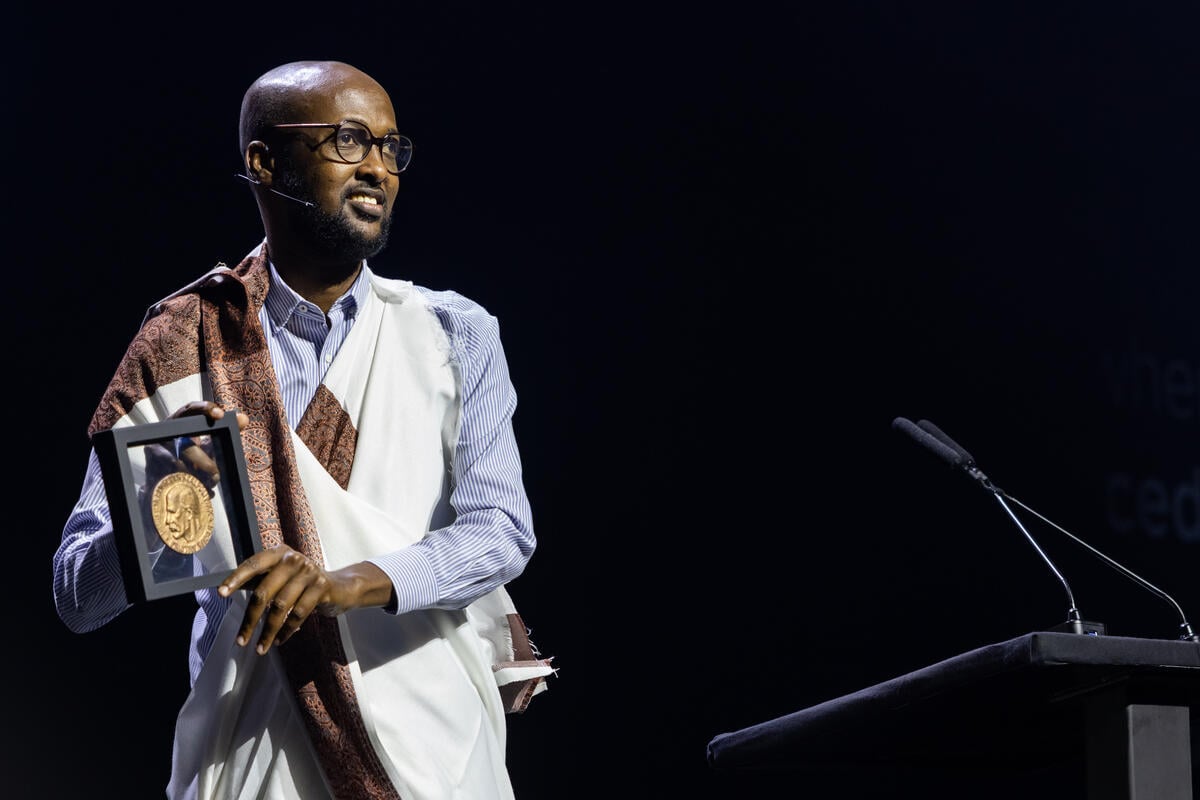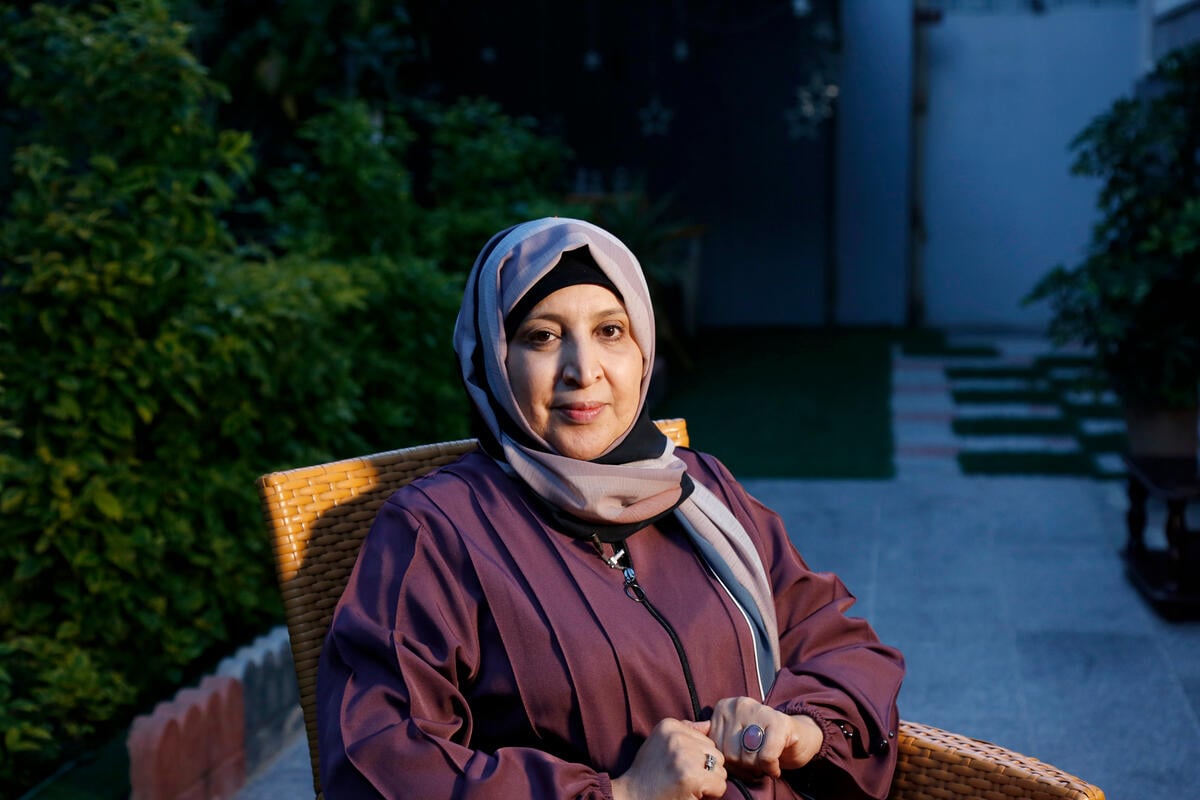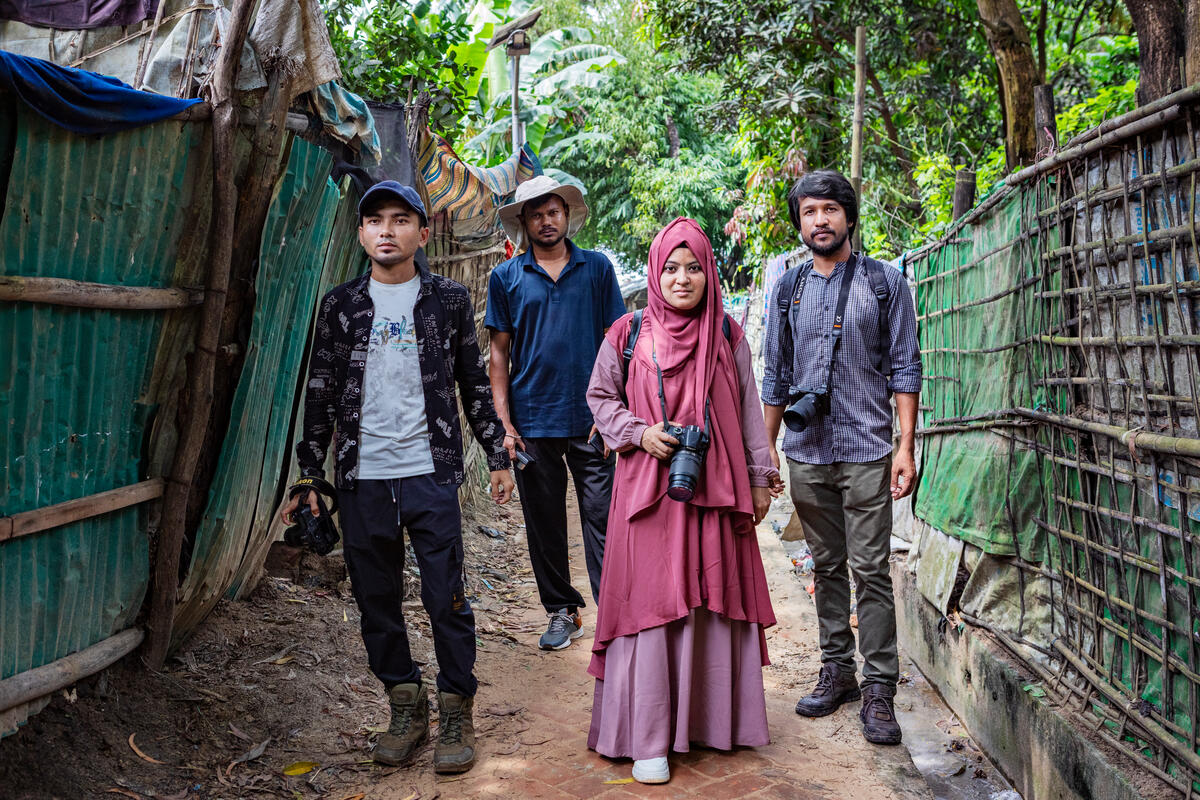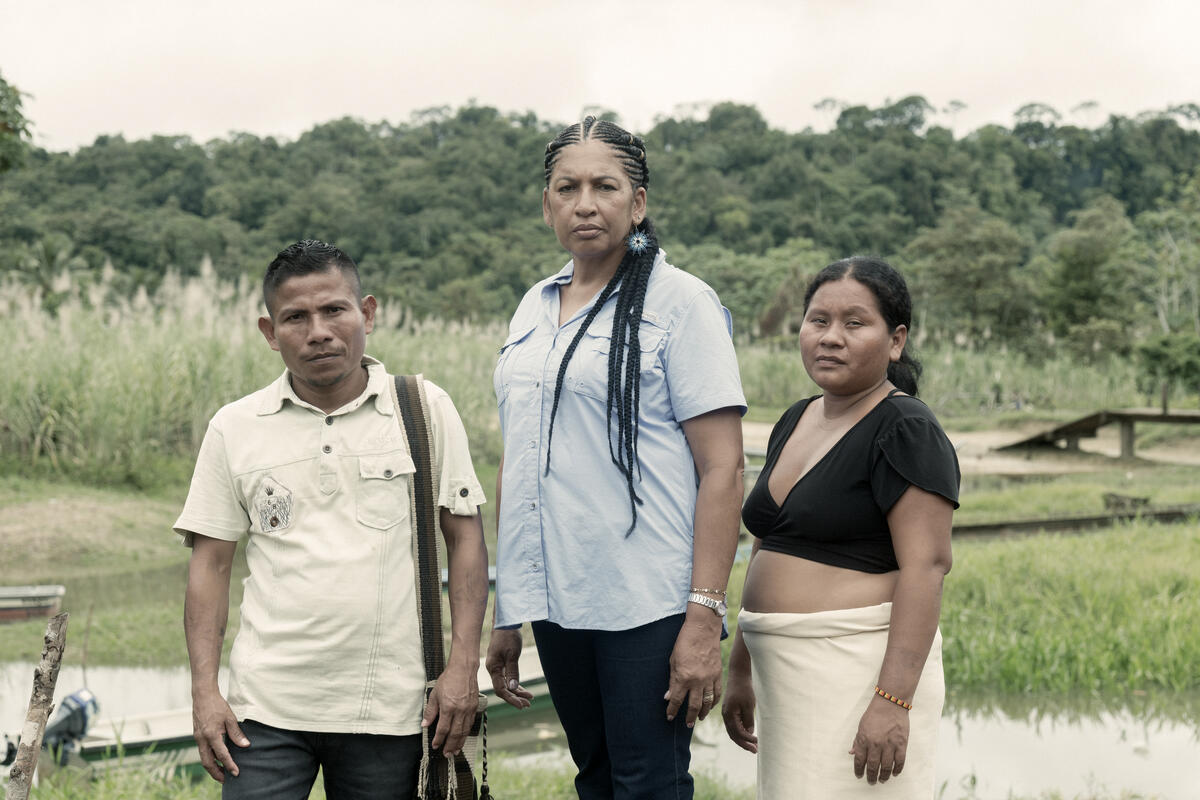Nansen award winner asks "Why is there no money for Burundi?"
Nansen award winner asks "Why is there no money for Burundi?"

GENEVA, November 3 (UNHCR) - The winner of this year's Nansen Refugee Award - the annual prize given to individuals or organizations who have distinguished themselves in their work on behalf of refugees - on Thursday called on the international community to show more generosity towards Burundian returnees.
Known in her native land as the 'Angel of Burundi,' Marguerite Barankitse has helped thousands of children and women make a new start in Burundi after years of living in exile. Visiting UNHCR headquarters in Geneva on Friday, she made no attempt to hide her dismay at the news that the refugee agency is rapidly running out of funds to finance its voluntary repatriation operation for Burundian refugees.
"How is it possible that no money can be found to give all those children the chance of a decent life?" she said. "When I hear something like this, it makes me think that the international community does not take us seriously. We are working so hard to rebuild Burundi; we have had a peaceful election; we are doing everything we can. Why is there no money?"
UNHCR warned last week that it had received less than half of the US$ 62 million it needs to carry out its ongoing voluntary repatriation programme for Burundian refugees. Unless it receives additional funding very rapidly, the refugee agency may well have to suspend the programme, which is its biggest repatriation operation in Africa. Since 2001, UNHCR has helped some 285,000 Burundians return to their homeland - including 58,000 so far this year. Nevertheless, there are still some 400,000 Burundian refugees in neighbouring Tanzania alone.
"I have been lucky enough not to have been a refugee myself," said Barankitse, "and I can only imagine how hard it must be to lose everything - your home, your friends, your identity. There is no greater wealth than to be in your own country. How can we tell all these people who want to come home that there is no money?"
In the little town of Ruyigi, not far from the Tanzanian border in eastern Burundi, Marguerite Barankitse works closely with UNHCR to help thousands of women and children recently returned to their homeland. Her vocation grew out of the wave of ethnic violence that unfurled over Burundi in the wake of President Melchior Ndadaye's assassination in 1993. A Tutsi herself, Barankitse saved the lives of 25 children whose parents were among 72 people massacred in Ruyigi in the space of a few days. She herself was beaten, tied up and forced to witness some of the killings. She later managed to escape and hide with the children under the roof of the local church.
Since then, she has become a mother to thousands of children from all ethnic groups and nationalities who have been uprooted, orphaned or disabled by the conflict. She runs a team of 120 people, many of them volunteers, who look after a total of some 10,000 children. All over Burundi, she has set up villages for children who have been orphaned or separated from their families. They live in these villages in the company of social workers, with nannies to look after the younger ones.
"We are training local women, very often women who were refugees and have just returned to Burundi, to look after the children - in this way, we also create a new base of skills, we give them a chance to earn a living while taking care of children in need," Barankitse said. "These women have been the lifeline of Burundi during the country's darkest years. They ploughed the fields at night and hid during the day. They kept their families together during their years in exile. We must invest in them - the future of Burundi depends on it."
With the election of President Pierre Nkurunziza in August, Burundi's process of political transition, which began with the 2001 Arusha peace accords, effectively came to an end. Nevertheless, the new Burundian government faces enormous challenges as it strives to achieve a stable peace: the reconstruction of homes and infrastructure; the creation of health and education facilities; and the reintegration of hundreds of thousands of returning refugees and internally displaced people.
UNHCR had committed itself to build close to 23,000 homes, 48 schools with a total of 245 classrooms and 14 health centres in 2005. Because of lack of funds, the refugee agency has already had to revise these numbers down to 43 schools and 11 health centres. If the current financial crisis continues, it will have to stop all building programmes. Income-generating activities and professional training programmes benefiting some 10,000 people will also be suspended.
"This cannot be allowed to happen," Barankitse said. "What we are doing is only a drop in the ocean, but if everyone puts in a drop we can make a difference and turn the tide."









